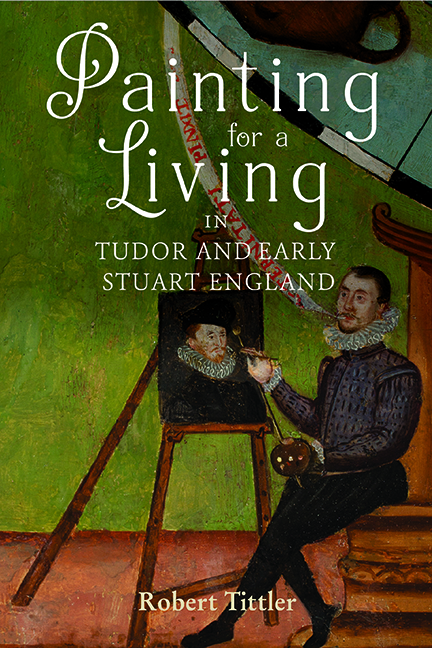Book contents
- Frontmatter
- Dedication
- Contents
- List of Illustrations
- Preface
- Acknowledgements
- Editorial Conventions and Abbreviations
- Part I Introduction
- Part II Kinds of People
- Part III Particular Specialities
- Part IV Ways and Means
- Part V Conclusion
- Bibliography
- Index
- STUDIES IN EARLY MODERN CULTURAL, POLITICAL AND SOCIAL HISTORY
- Frontmatter
- Dedication
- Contents
- List of Illustrations
- Preface
- Acknowledgements
- Editorial Conventions and Abbreviations
- Part I Introduction
- Part II Kinds of People
- Part III Particular Specialities
- Part IV Ways and Means
- Part V Conclusion
- Bibliography
- Index
- STUDIES IN EARLY MODERN CULTURAL, POLITICAL AND SOCIAL HISTORY
Summary
The most probing investigations of the painters’ trade in early modern England have focused on London and especially on the Painter-Stainers’ Company of that city. The inadvertent neglect of painters and painting elsewhere in the realm leaves the impression that any such activity was either unusual and/or not worth investigation. Some earlier scholarship, as we have seen at the outset, virtually proclaimed such a void. But just as, for example, historians of English political history moved long ago from a sole concentration on the kings, queens, and parliaments at the centre to embrace the additional dynamics of locality and region, so must the study of particular occupations like painting move as well. Even when concentrating exclusively on portraiture, no less a curatorial authority than Sir Roy Strong has suggested the potential at least of regional painting as a worthy subject for study. Tightly focused but still valuable investigations have been made of local painting in provincial centres like Norwich, Bury St Edmunds, Gloucester, and Chester. But a more comprehensive survey of provincial painters has been lacking. Not all of that apparent neglect has been wilful. The subject admittedly presents its own special challenges. For one, it is more difficult to learn about the painters through their work, as less of it has survived. By and large, the production of provincial painting itself has not as often met the aesthetic standards of paintings done at the centre for the court and aristocracy. It is less likely to have been preserved, collected, or, in modern times, analyzed and curated for the public view. Then, too, much of it was produced in the forms of, for example, wall painting, glass painting, and decorative painting in private residences which are all very difficult to display in museums and galleries where they might more effectively be studied and analyzed.
Another impediment lies with documentation. As with all painting of this era, almost none of it was signed, so that one must discover some form of a paper trail to identify the painter. If it survives at all, much of that written record which might inform our understanding of provincial painters’ lives and activities remains either in the private archives of family estates or in myriad provincial archives.
- Type
- Chapter
- Information
- Painting for a Living in Tudor and Early Stuart England , pp. 86 - 112Publisher: Boydell & BrewerPrint publication year: 2022

